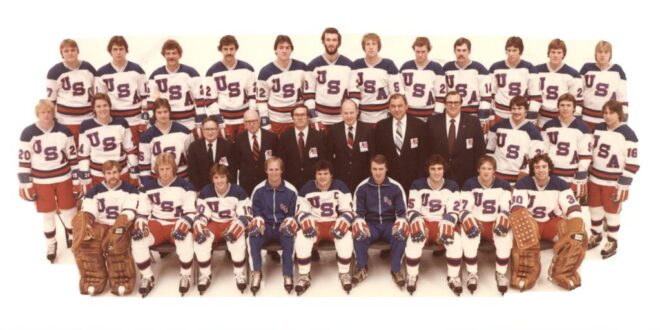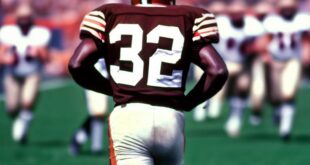By Bruce Lowett
Gordie Howe’s career was in its twilight. Wayne Gretzky was only a glimmer on the NHL horizon. Hockey was essentially a Canadian sport with limited United States appeal, mostly in the Northeast.
But the United States vs. the Soviet Union in anything was still big in the Cold War era, and the Olympics were as good a flash point as any.
The U.S. team beat the Soviets 3-2 en route to its gold medal at the 1960 Squaw Valley Olympics. But that was a different era.
“I guess we were in the right place at the wrong time,” said Bill Christian, whose goal beat that Soviet team. “We just went back to our hotel for a little celebration. The day after we won the gold, we were on our way home, back to our individual jobs. That was it. No big celebrations. Nothing.”
At the start of the 1980 Winter Olympics in Lake Placid, N.Y., the U.S. team was, like its gold-medal predecessor, little more than an afterthought — even in the mind of its coach.
“The Soviets had beaten us 10-3 in an exhibition a few days before the Olympics,” Herb Brooks said. “They were fantastic. … I had little hope for a medal. I would have been very happy to have achieved a fourth-place finish.”
The Soviets were seeded No. 1, and deservedly so. They had won five gold medals and one bronze in the previous six Olympics. The seventh-seeded U.S. team could cling to one piece of history.
That one Soviet loss had been administered at Squaw Valley, Calif., in 1960, the last time the Olympics had been held in the United States — when the Americans beat them in the semifinals and defeated Czechoslovakia to win the gold.
If there was an omen for the 1980 team, good or bad, it was this: Brooks, now coach of the NHL’s Pittsburgh Penguins, was the last player cut from the 1960 squad.
The U.S. and USSR teams each won their first five games. On Feb. 22, George Washington’s birthday, patriotism was running rampant in and outside the Olympic Field House.
The Soviets unleashed 30 shots in the first two periods to the United States’ 10. Only one dramatic save after another by former Boston University goaltender Jim Craig kept the United States close.
When Mark Johnson scored with one second remaining in the first period to tie it at 2, Soviet coach Viktor Tikhonev replaced legendary goalie Vladislav Tretiak with Vladimir Myshkin.
“We didn’t even realize (Tretiak) was out of there until the middle of the next period,” center Neal Broten said. “But after that first period, we knew we could win.”
The Soviets led 3-2 after two periods.
“We told ourselves we were just down one, when we’d been down six after two periods last time we played them,” team member John Harrington said. “We’d played 40 minutes, they were just one ahead, but we were younger. We wanted to take it to ’em.”
Johnson tied it again, this time on a power play, 8:39 into the third period. And at exactly the 10-minute mark, midway through the final period, Harrington’s pass set up Mike Eruzione to become an American icon.
Eruzione, the team captain from Winthrop, Mass., and a member of the International League’s Toledo Blades, took Harrington’s pass from the corner, skated into the slot between the faceoff circles and unleashed a shot past a Russian defenseman and through Myshkin .
The explosion of cheers was deafening, and most of the 10,000 fans squeezed into the 8,500-seat arena began a chant of “USA! USA!” that never abated in the final 10 minutes.
As the final 10 seconds ticked away, ABC broadcaster Al Michaels gained an immortality of sorts. “Do you believe in miracles?” he shouted, and at the final buzzer he answered, “Yes!”
(Almost anticlimactically, the U.S. team won the gold medal two days later, rallying from a 2-1 deficit after two periods to beat Finland 4-2.)
“We frustrated ’em,” Craig said of the Soviet team. “For the first time, I think they panicked. They skate better than anyone in the world; they pass better than anyone in the world. But in the last few minutes tonight they just threw the puck forward. And we were in a zone. Amazing!”
Did he ever imagine being part of something like this?
“Sure I did,” Craig said. “Everybody dreams.”
Outside the arena, as snow began to fall, the crowd spontaneously broke into The Star Spangled Banner, America the Beautiful and God Bless America.
Later, Brooks pulled from his pocket a yellow card with a scrawled message. He said it contained the pregame message he read to his team:
“You were born to be a player. You were meant to be here.”
——–
© St. Petersburg Times, published December 26, 1999
Information from the New York Times and Washington Post was used in this report.




